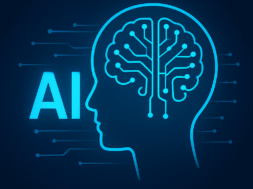
AI Tools Are Empowering Neurodiverse Professionals — From ADHD to Dyslexia, Workers Find a New Edge at Work
Artificial intelligence is becoming a quiet game-changer for neurodiverse professionals — including those with ADHD, autism, dyslexia, and similar conditions — helping them thrive in workplaces that were not originally designed for their needs.
According to a recent study conducted by the UK’s Department for Business and Trade, neurodiverse employees reported 25% higher satisfaction when using AI assistants compared to neurotypical workers. They were also significantly more likely to recommend AI-based tools to others, citing improvements in focus, organization, and productivity.
For Tara DeZao, Senior Director of Product Marketing at enterprise low-code platform provider Pega, AI tools have been transformative. “If I get up and move during meetings, I can’t take notes — but now AI automatically records and summarizes everything, highlighting key points,” said DeZao, who has combination-type ADHD that affects both attention and activity levels. “I’ve spent years trying to push through traditional work systems, but these tools truly make a difference.”
AI in the workplace now ranges from intelligent note-takers and scheduling assistants to communication support platforms. Many of these tools are particularly effective at enhancing time management, executive functioning, and communication — skills that neurodiverse professionals often find most challenging.
Interestingly, companies that embrace neurodiversity inclusion are seeing tangible business results. Research shows such organizations can generate nearly 20% higher revenue, benefiting from the creativity, empathy, hyperfocus, and innovation that neurodiverse employees often bring.
Ethical AI and Neurodiversity
“Building ethical frameworks around AI to support neurodivergent workers isn’t just moral — it’s strategic,” said Kristi Boyd, an AI specialist with the SAS Data Ethics Practice. She referenced an SAS report indicating that companies with strong AI governance are 1.6 times more likely to achieve at least double ROI from their AI investments.
However, Boyd cautions that organizations must manage three key risks: conflicting needs, unconscious bias, and data privacy. For example, people with dyslexia may benefit from AI readers, while others with conditions like bipolar disorder might rely on AI-driven scheduling tools to align with periods of high productivity. “Recognizing these differences allows companies to offer flexible and inclusive AI options,” Boyd explained.
AI systems also need continuous monitoring to prevent bias. Algorithms have, in some cases, been found to associate neurodiversity with negative traits, according to research from Duke University. To ensure safety and privacy, companies should provide ways for employees to use AI tools without disclosing their diagnoses publicly.
A Brighter Path Forward
To promote fairness in AI, nonprofit Humane Intelligence recently launched the Bias Bounty Challenge — an initiative allowing participants to identify and fix biases in AI communication systems. The project aims to make digital environments more inclusive for people with cognitive differences, sensory sensitivities, and unique communication styles.
For many, these innovations have been life-changing. DeZao described her ADHD diagnosis as “like someone turned on the light in a dark room.” She added, “In today’s hyper-connected world, multitasking can feel impossible. But AI lets me stay focused while delegating smaller tasks. It’s like having a digital co-worker who never loses track.”
As AI continues to evolve, its role in creating a more inclusive, neurodiverse workplace is becoming clearer — proving that technology, when designed ethically, can be both empowering and deeply human.













